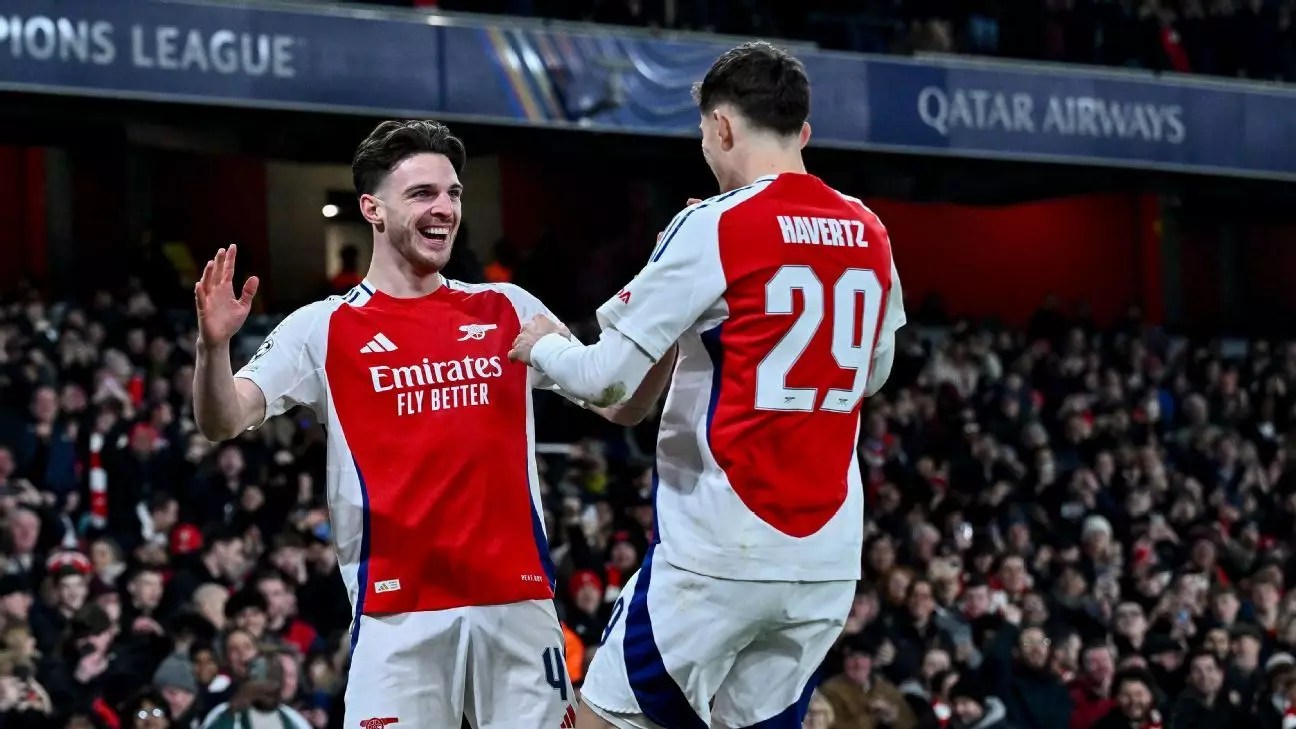In a monumental shift in European club football, the introduction of the new Champions League format has sparked varied reactions among fans and players alike. Following Arsenal’s commanding 3-0 victory over Dinamo Zagreb, Declan Rice expressed enthusiasm for the evolution. The midfielder acknowledged the initial perplexity surrounding the revised structure but highlighted the excitement that comes with facing diverse opponents. Rice’s perspective is critical, as it showcases not only the adaptability of players but also their readiness to embrace innovative changes in a long-standing competition.
After Arsenal’s decisive win, the team finds itself in an advantageous position within a complex 36-team group stage. The mathematical implications suggest that Arsenal’s qualification for the knockout rounds is nearly secured, a point emphasized by their current standing in third place with 16 points. While manager Mikel Arteta remains cautious, not jumping to conclusions about their progression, the facts are clear. The triumph marks a significant moment in Arsenal’s European campaign, amplifying the possibilities of their performance on the continental stage.
The match was characterized by stellar individual performances, notably from Kai Havertz and Martin Ødegaard, who both made substantial contributions to the scoreline. Havertz extending his impressive tally to 14 goals this season and Ødegaard breaking his scoring drought signifies a well-rounded and threatening attacking unit. Arteta’s praise for his squad’s balance, particularly their defensive resilience—evidenced by an unyielding defensive display that saw no shots on target from Dinamo—underscores the team’s collective effort. This blend of strength and unity is crucial as teams often need to present a comprehensive game to succeed in high-stakes matches such as these.
Furthermore, avoiding a Champions League playoff not only positions Arsenal favorably in the tournament but also offers a significant opportunity for recovery. As noted by Arteta, the extended break can serve as a pivotal moment for the squad to regroup, strategize, and refresh ahead of the knockout phase. With a congested fixture list previously taking its toll, this rest can be invaluable for maintaining player fitness and mental sharpness, especially given Arsenal’s current exit from the FA Cup.
The team’s current trajectory in the Champions League presents a lucrative prospect for players and fans alike, heralding a new dawn for Arsenal in European competition. Engaging with formidable opponents, reaping the rewards of strategic rotations, and enjoying the necessary recovery period, Arsenal could well position themselves for a memorable campaign. As they navigate the complexities of this enhanced format, the blend of talent, strategy, and endurance will be pivotal in writing a new chapter in their Champions League journey.


Leave a Reply